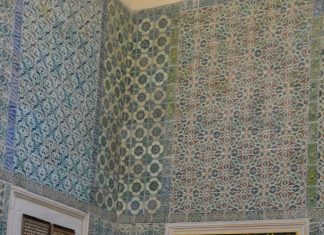Did she not sing the songs of Kao- pien? And upon the brush-case and the paper-weight’she gave your son, are there not characters which read, `Pure object of art belonging to Kao of the city of Pho-haV? That city no longer exists; but the memory of Kao-pien remains, for he was governor of the province of Sze-tchouen, and a mighty poet. And when he dwelt in the land of Chou, was not his favorite the beautiful wanton Sie—Sie-Thao, unmatched for grace among all the women of her day. It was he who made her a gift of those manuscripts of song; it was he who gave her those objects of rare art. Sie-Thao died not as other women die. Her limbs may have crumbled to dust; yet something of her still lives in this deep wood, her Shadow still haunts this shadowy place.”
Mists of the morning
Tchang ceased to speak. A vague fear fell upon the three. The thin mists of the morning made dim the distances of green, and deepened the ghostly beauty of the woods. A faint breeze passed by, leaving a trail of blossom-scent—a last odor of dying flowers—thin as that which clings to the silk of a forgotten robe; and, as it passed, the trees seemed to whisper across the silence, “Sie-Thao.”
Fearing greatly for his son, Pelou sent the lad away at once to the city of Kwang-tchau-fu. And there in after years, Ming-Y obtained high dignities and honors by reason of his talents and his learning; and he married the daughter of an illustrious house, by whom he became the father of sons and daughters famous for their virtues and their accomplishments. Never could he forget Sie-Thao; and yet it is said that he never spoke of her—not even to his children when they begged him to tell them the story of two beautiful objects that always lay upon his writing table; a lion of yellow jade, and a brush-case of carven agate.
Read More about The Story of Saidjah part 7








